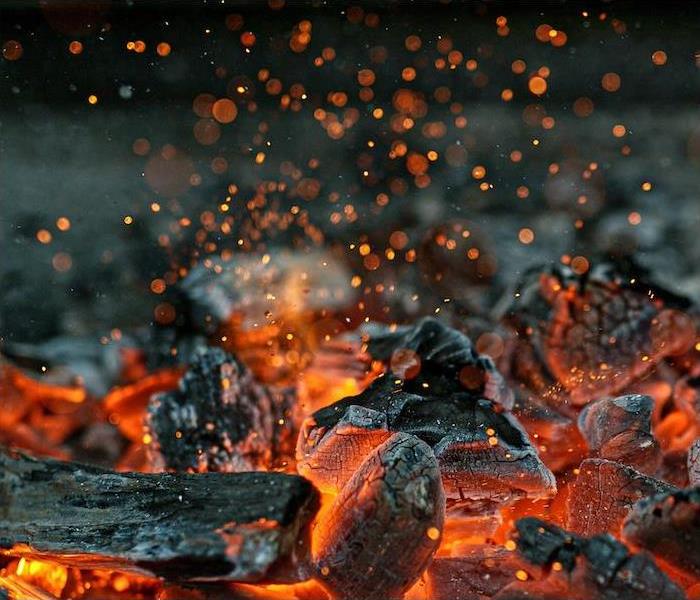The Basics of Campfire Safety | SERVPRO® of Washington County
6/11/2021 (Permalink)
When school is out and the weather is warm, many families in the area turn to camping as a favorite weekend activity. Whether you’re headed to the Ashaway RV Resort or the Charlestown Breachway, there’s lots of fun and many great adventures to be had while we take in nature’s incredible scenery.
One of the most common camping activities is the old-fashioned campfire.
They’re great for warmth and atmosphere at night, handy for cooking anything from popcorn to fresh-caught fish, and of course you brought the s’mores. You did bring the s’mores, right?
But with the recent prevalence of wildfires, it’s more important than ever to be aware of the proper ways to build, maintain and dispose of your campfire to avoid potential disaster at the campground. After all, humans cause almost 62,000 fires in the United States each year, so let’s review some of the most important stuff.
Before the Fire
Know the rules of your campground—do they allow fires? This can change from season to season based on wildfire risk, so be sure.
Use a provided fire pit or ring, or create one yourself by digging a pit away from branches or power lines, and surrounding it with stones. Make sure it’s at least 10–15 feet away from anything flammable.
During the Fire
Build your fire safely and sturdily, using wood local to the campsite when possible.
Keep water and a shovel nearby, so you can douse or cover any runaway flames.
Mind the wind, and keep any flammable materials or items upwind and away from the fire pit area.
Never leave the fire unattended, and be mindful of kids and pets as they play. Campfires are the most common cause of camping injuries for children.
After the Fire
Extinguish all flames and ashes thoroughly. Dump water (slowly, to avoid throwing ash and billowing smoke) on the fire, then stir the ashes with a shovel.
Pour more water over the ashes, and continue until the ashes are cool to the touch. Check under stones for hidden embers, and soak large logs with extra water, because they can stay hot for a very long time.
SERVPRO is here to help with disaster cleanup of any kind, from fire to water, from storms to mold remediation. If your home or business has been damaged, call or click today to see how we can help you manage and restore the situation.






 24/7 Emergency Service
24/7 Emergency Service
